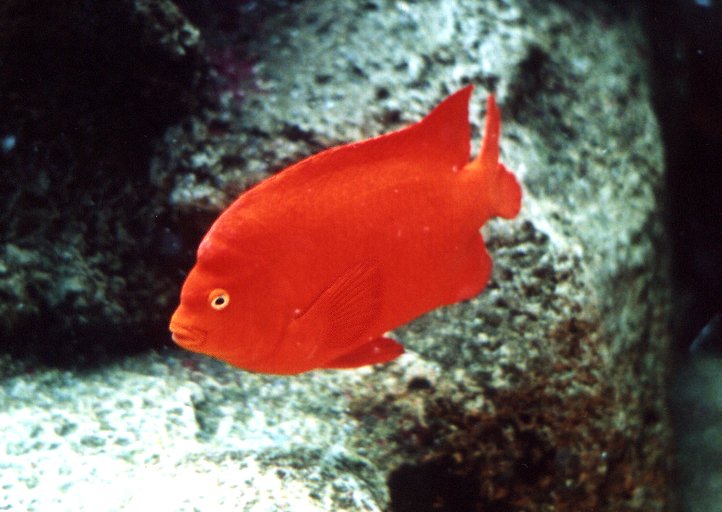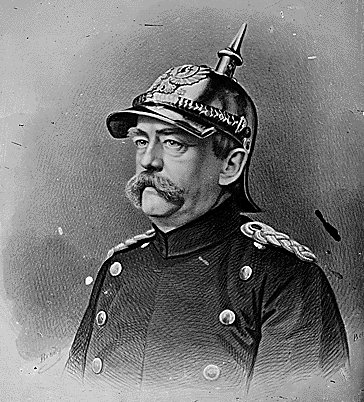Nation-State: Made up of people who shared a common sense of identity. Before 1860 only Britain and France could be considered to be nation-states.
French nationalism was strongly present before the defeat of Napoleon, who wished to conquer Europe and spread France's culture, beliefs, and laws (1800-1814).
Napoleon’s rule led to the rise of nationalism in the countries he conquered (such as Germany).

At the Congress of Vienna (1815) the map of Europe was redrawn by the allied powers without regard for the nationalism that was growing. This disregard contributed to the revolts of 1848.
Also at the Congress of Vienna, some wanted a “Germany”, but the German Confederation was created instead. Austria (Metternich), Prussia, and other German states feared the idea of a united Germany, and the disruption of the balance of power that would result in such an amalgamation.
In 1848, nationalist movements grew among people who shared the same culture, language, or sense of commonness. Although these revolts failed, the desire for peoples to gain nation-states continued to grow. After 1848 governments began to harness the power of nationalism.
The Birth of Italy
Italy divided prior to 1860, with much of the land under the rule of Austria or the Pope. Nationalism had been growing between 1815-1848, in part due to the nationalist writer Mazzini. 1848 revolt failed, and French troops were stationed in Rome.
Count Cavour, the Prime minster of Sardinia, used realpolitik methods to bring about Italian unification. Cavour wanted an Italian constitutional monarchy. He realized he needed help against Austria, and allied Sardinia with France. During the Crimean war, Cavour joined foreseeing a peace conference following victory, thus the possibility of redrawing the map to gain back lands from Austria. However, the peace conference ended in Italian frustration.
 |
| Cavour |
Napoleon III allied with Sardinia and defeated Austria in 1859, but abandoned the alliance when Prussia mobilized its troops, preparing to go into Italy. Napoleon also did not want to encourage rebellious behavior, for fear that such could occur in his own lands.
Cavour was able to join rebellious areas in the north into Sardinia, and created a new capital in 1860 at Turin.
In order for Cavour to unite with Southern Italy, he secretly allied himself with Garibaldi, a professional soldier who was willing to give up his own vision of an Italian Republic in favor of an Italy that was united. Garibaldi was able to gain most of Southern Italy, but was stopped by Cavour before invading the Papal States.
In 1861, parliament met (with representatives from all except Rome and the Vatican) and the Kingdom of Italy is formally established.
In 1866, Venetia was added to Italy as a prize for Italy’s helping Prussia in war against Austria.
In 1870, after French troops withdrew during the Fanco-Prussian war, Italy was fully united.
 |
| Garibaldi |
 |
| Garibaldi Fish |
Birth of Germany
Germany had long been divided. During Napoleon’s rule Germany had been consolidated into about 30 states. The fight against Napoleon stirred nationalistic feelings within Germany.
In the early stages of German unification, the Frankfurt Assembly (1848-1849) attempted to unite the German states into a Democratic state but failed due to it’s lack of actual power. The Zollverin was created by Prussian economist, Frederick List, to make a tariff union within the German states, contributing to the unified mentality.
Prussia: After the revolts of 1848, Prussia became the center for the movement to unify Germany. However, when Prussia was left out of the negotiations following the Crimean war it felt slighted, and feared that it’s international standing was slipping.
Otto Von Bismark (1815-1898) was chancellor of Prussia and a junker (Prussian noble). He was a strong conservative who disliked parliament and personal liberties of the people. However, Bismarck was a ruthless practicer of realpolitik, and was willing to go to great lengths to ensure that Prussia become a strong power.
Prussia was in dispute with Denmark over the provinces of Schleswig-Holstein. Prussia and Austria made and alliance to attack Denmark, and easily won the war. Shleswig went to Prussia and Holstein to Austria. However, this alliance did not last. Bismark created an unpleasant political environment to prompt Austria to attack Prussia, which it did in 1866. The northern German states sided with Austria and attacked Prussia. The result was the Seven Weeks War, from which Prussia emerged victorious, taking over the northern German states and Austria. Bismark treated those who had lost fairly kindly, so as not to bring about bitter emotions in the future.
 |
| Bismark |
The Franco-Prussian war of 1870 was brought about by more realpolitiking by Bismark. In 1868 the Spanish monarchy had been overthrown, and the crown was offered to Leopld of Hohenzollern-Sigmaringen, a German prince. Leopold was prompted by Bismark to accept the crown, which Napoleon III would not stand for, fearing German rule on both sides of France. A French diplomat met with King Wilhelm I of Prussia, and the issue was politely discussed. Bismarck edited the minutes of this meeting and released it to the public in a way that left French citizens outraged and calling for war (Ems dispatch). When France declared war it was up against the united German states, who won the war. On January 18, 1871, in the Hall of Mirrors at Versailles, Wilhelm was proclaimed “German Emperor”, marking the official creation of the German Empire.
France was forced to pay reparations for the war, and give up the land of Alsace-Lorraine under the Treaty of Frankfurt. Elections were held in France by way of the newly established universal male suffrage that Bismark granted to the people. The new government could then not have it’s legitimacy put into question since it was the people who elected it.
 |
| German Empire formally declared at the Hall of Mirrors,Versailles |
No comments:
Post a Comment